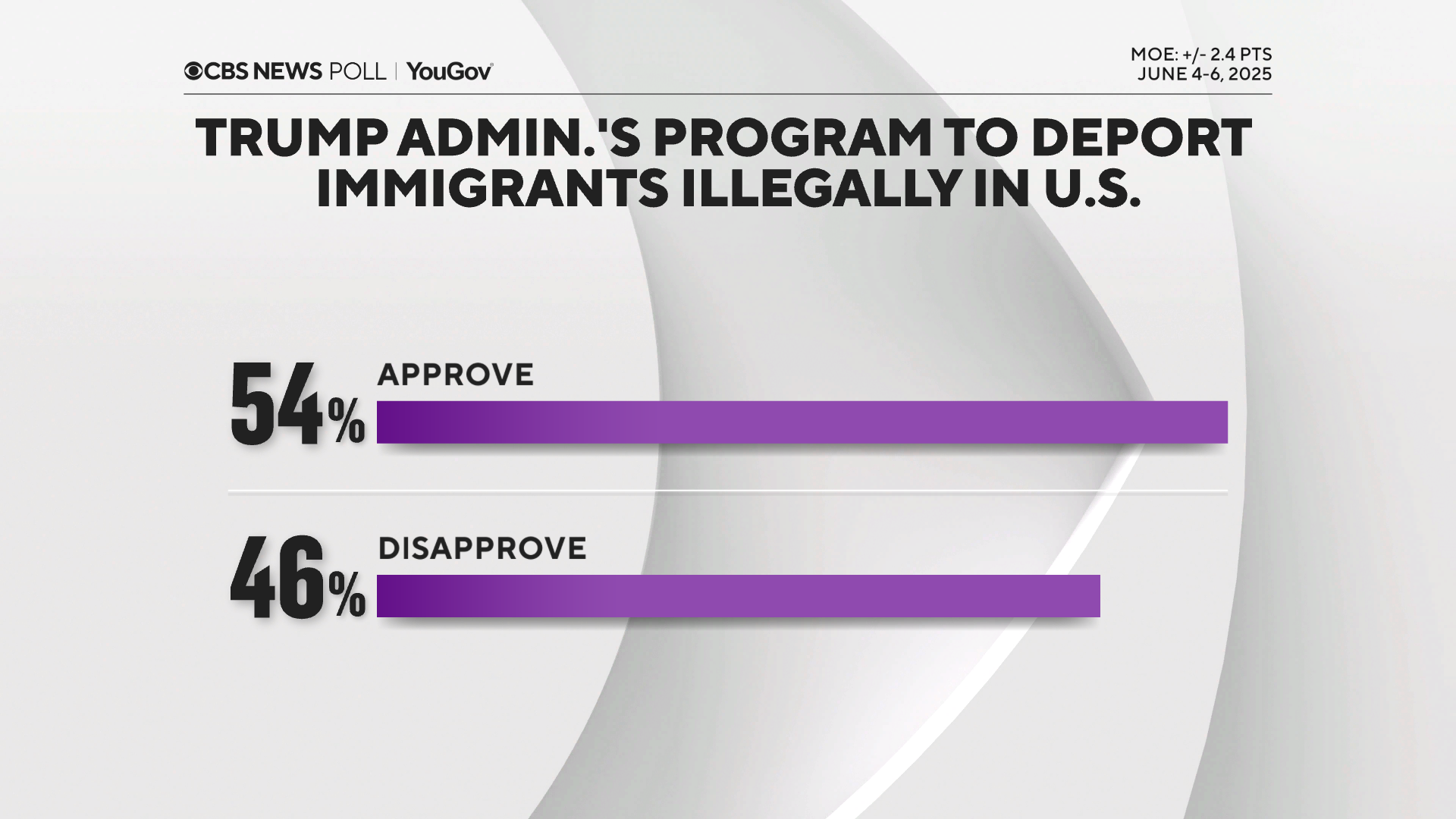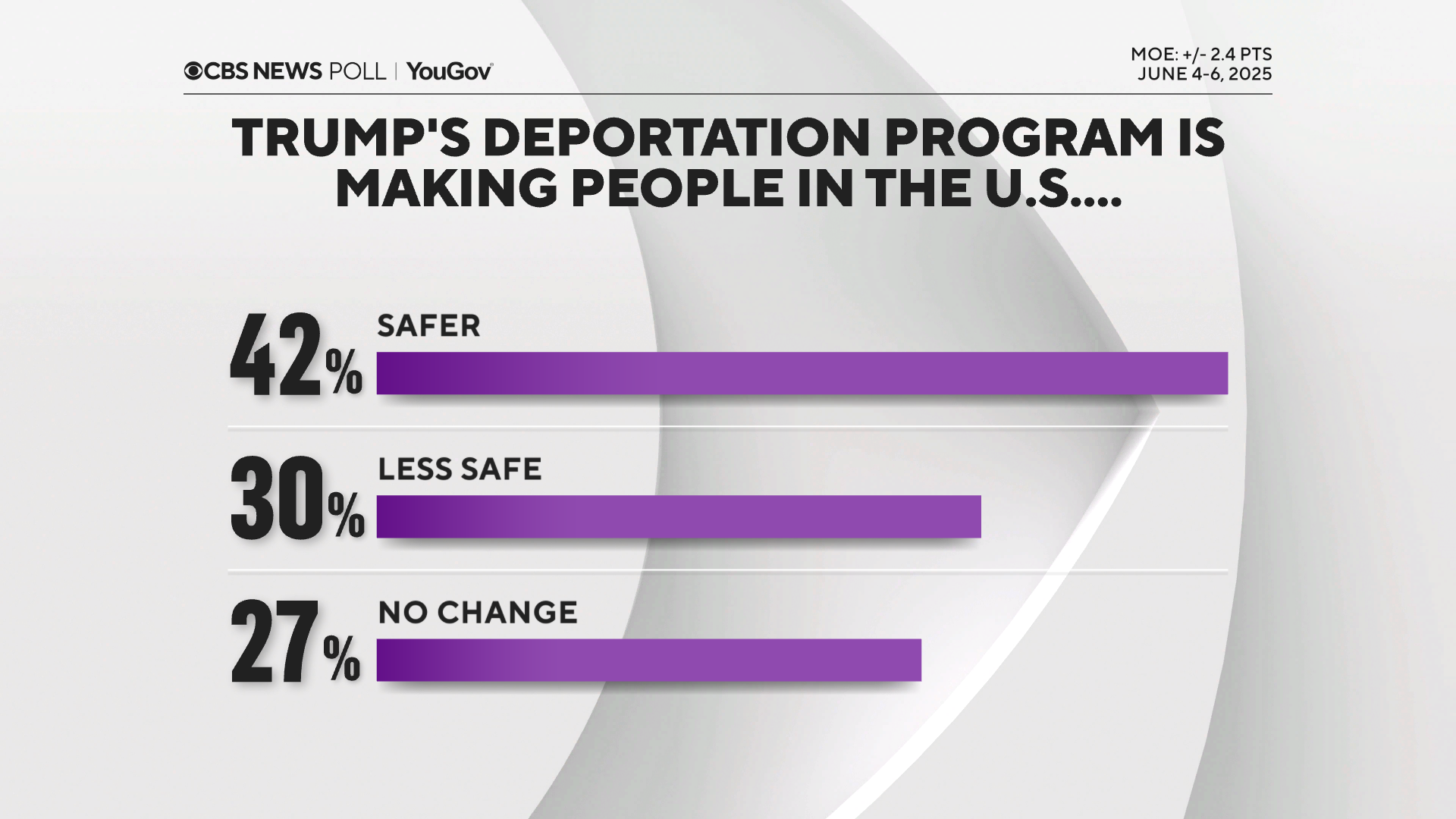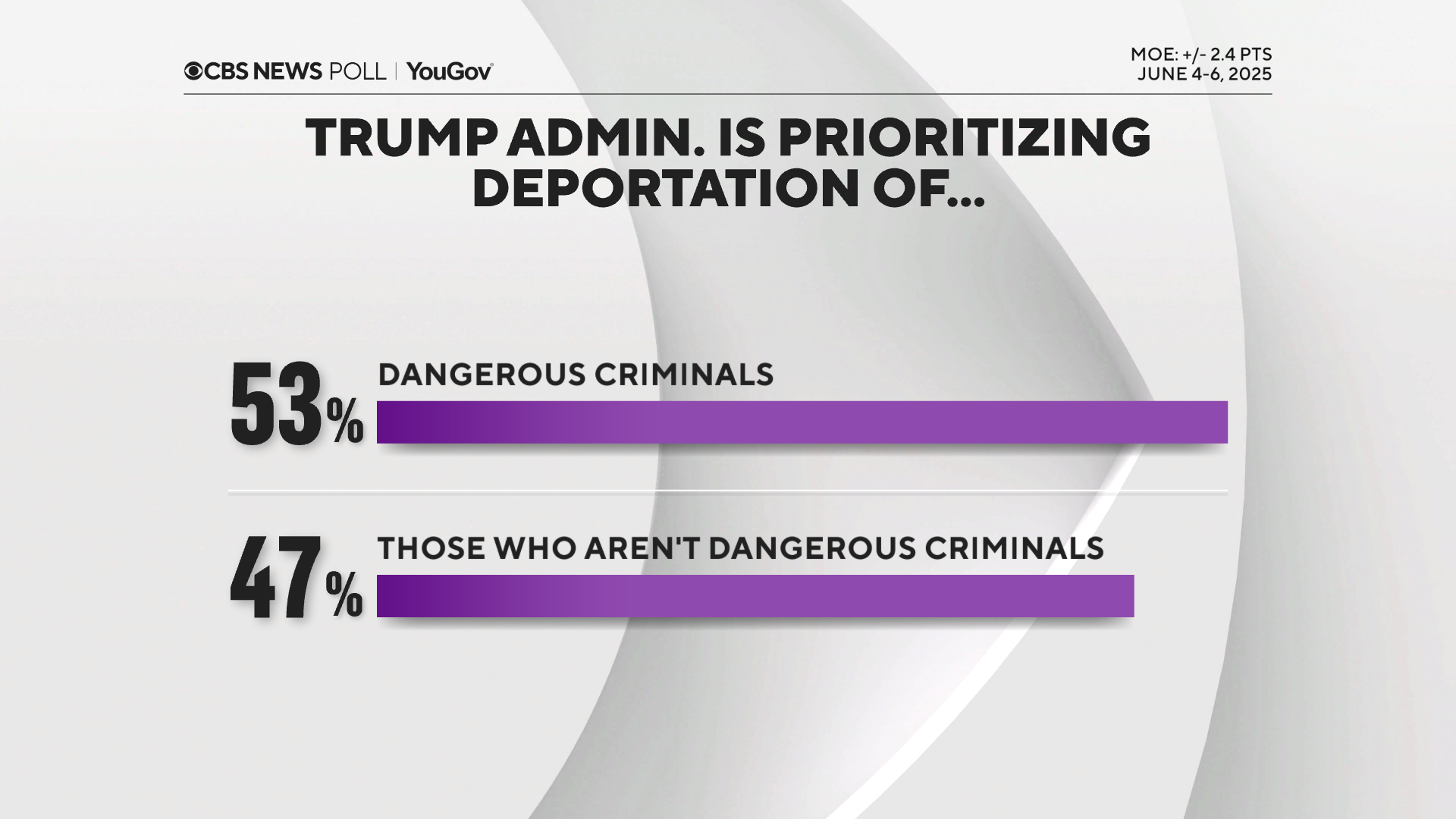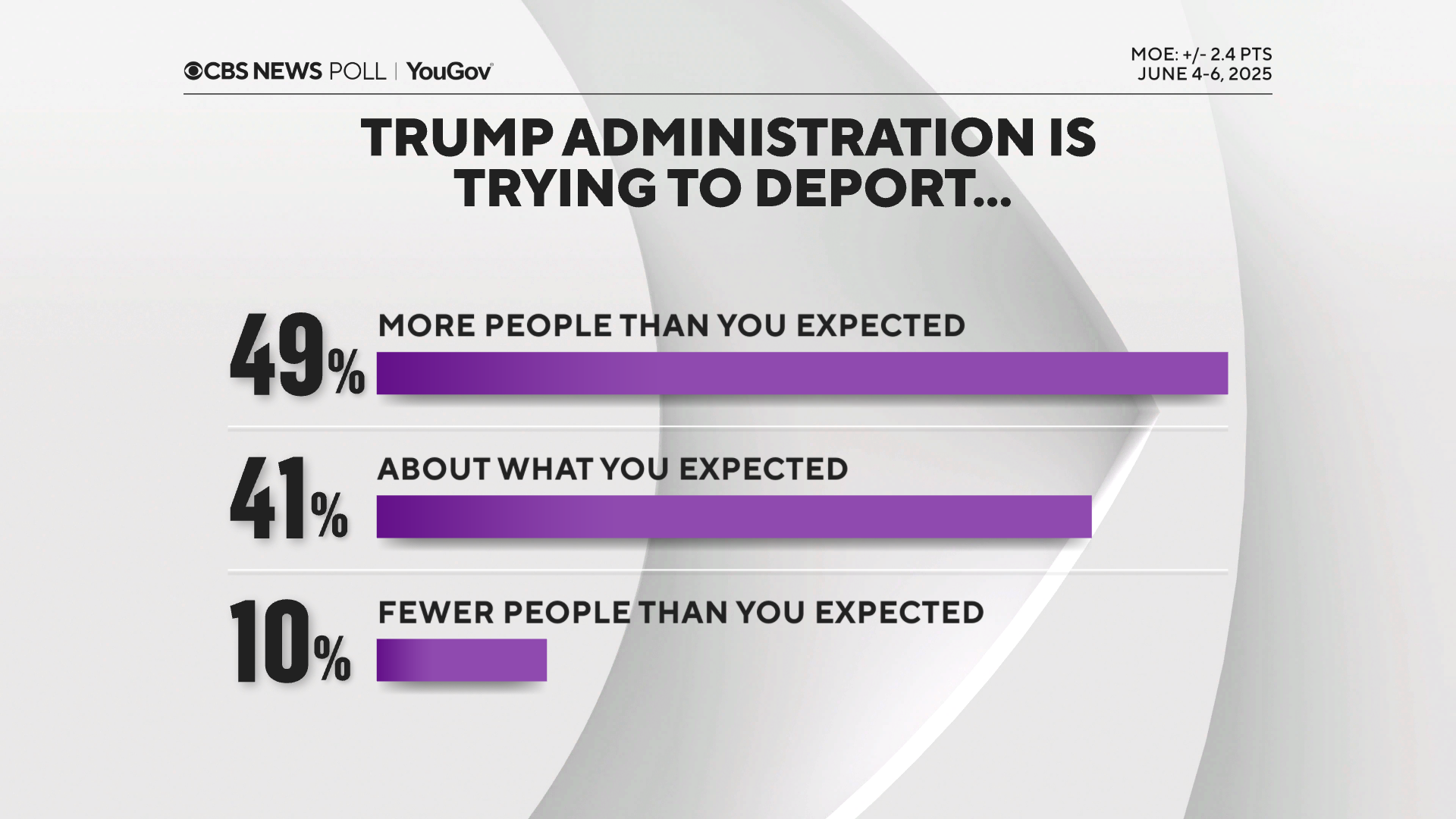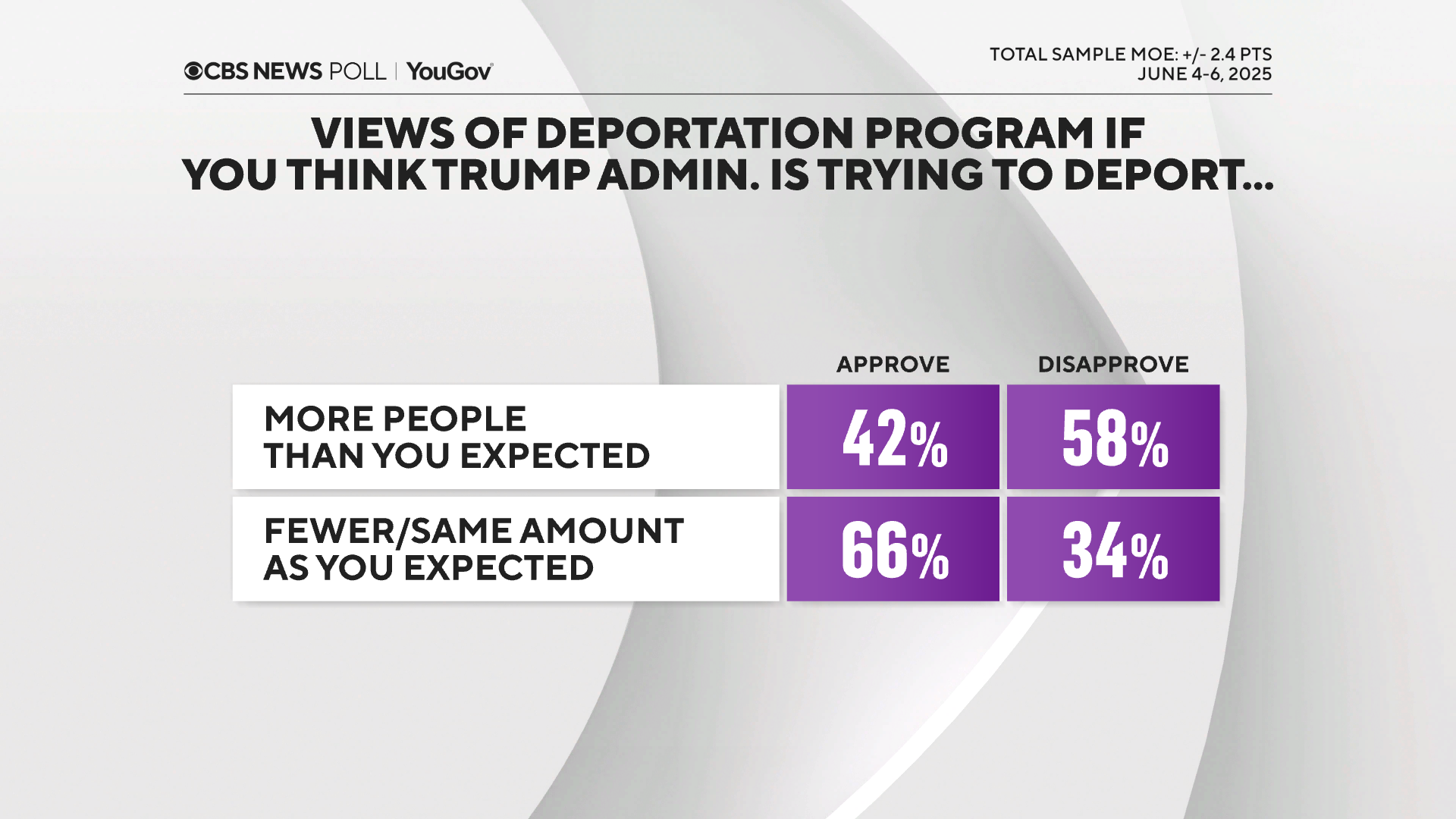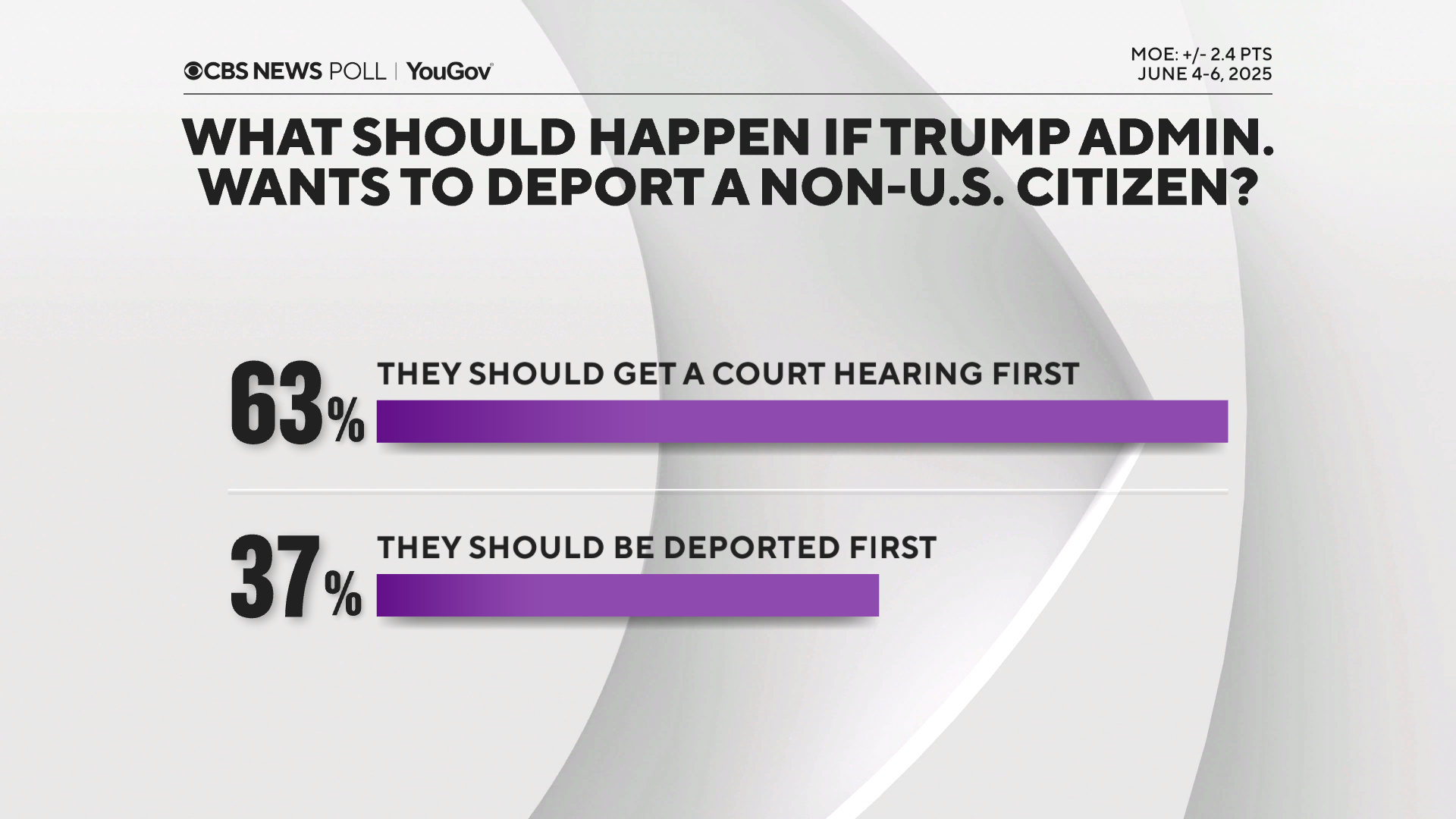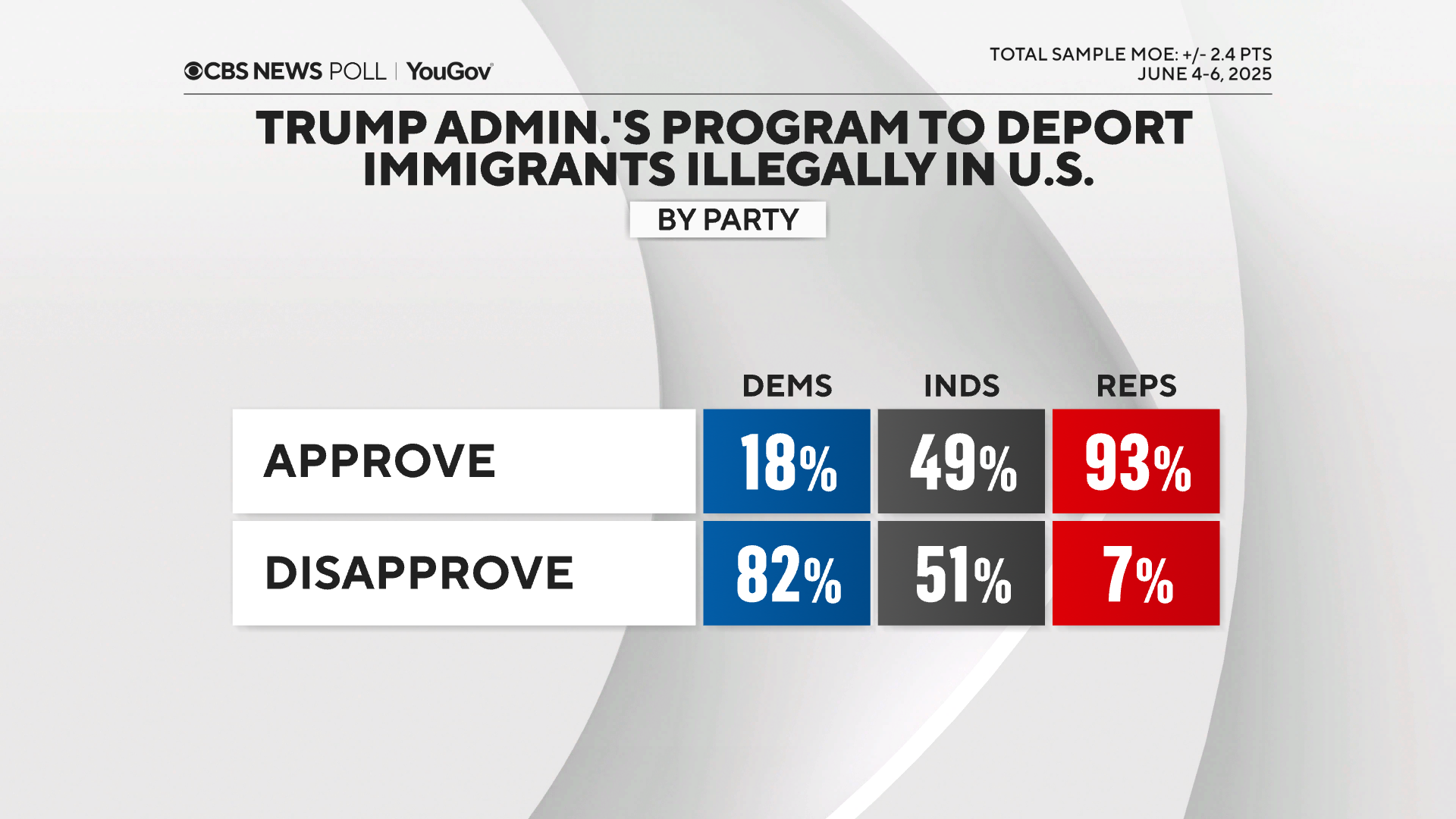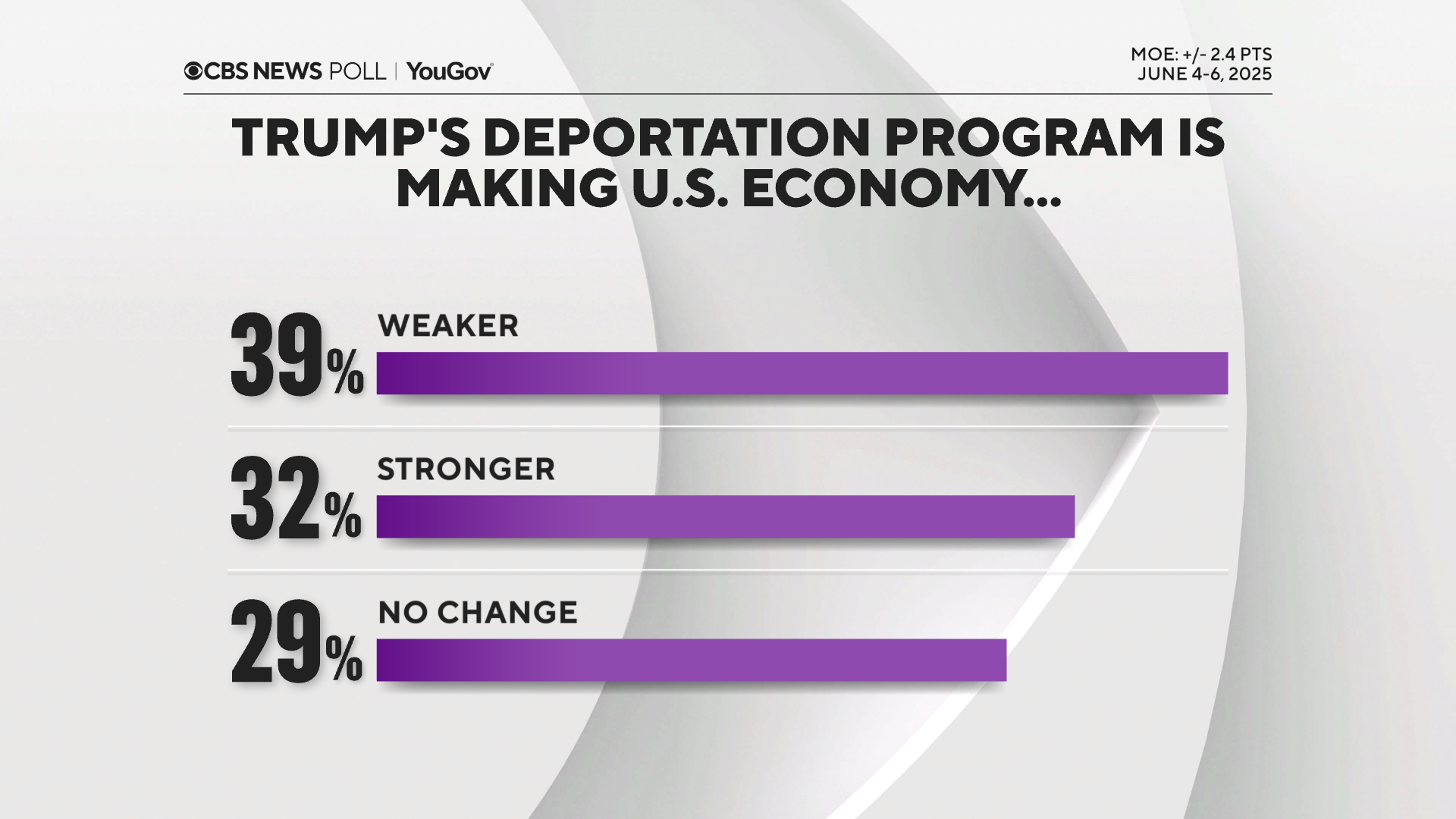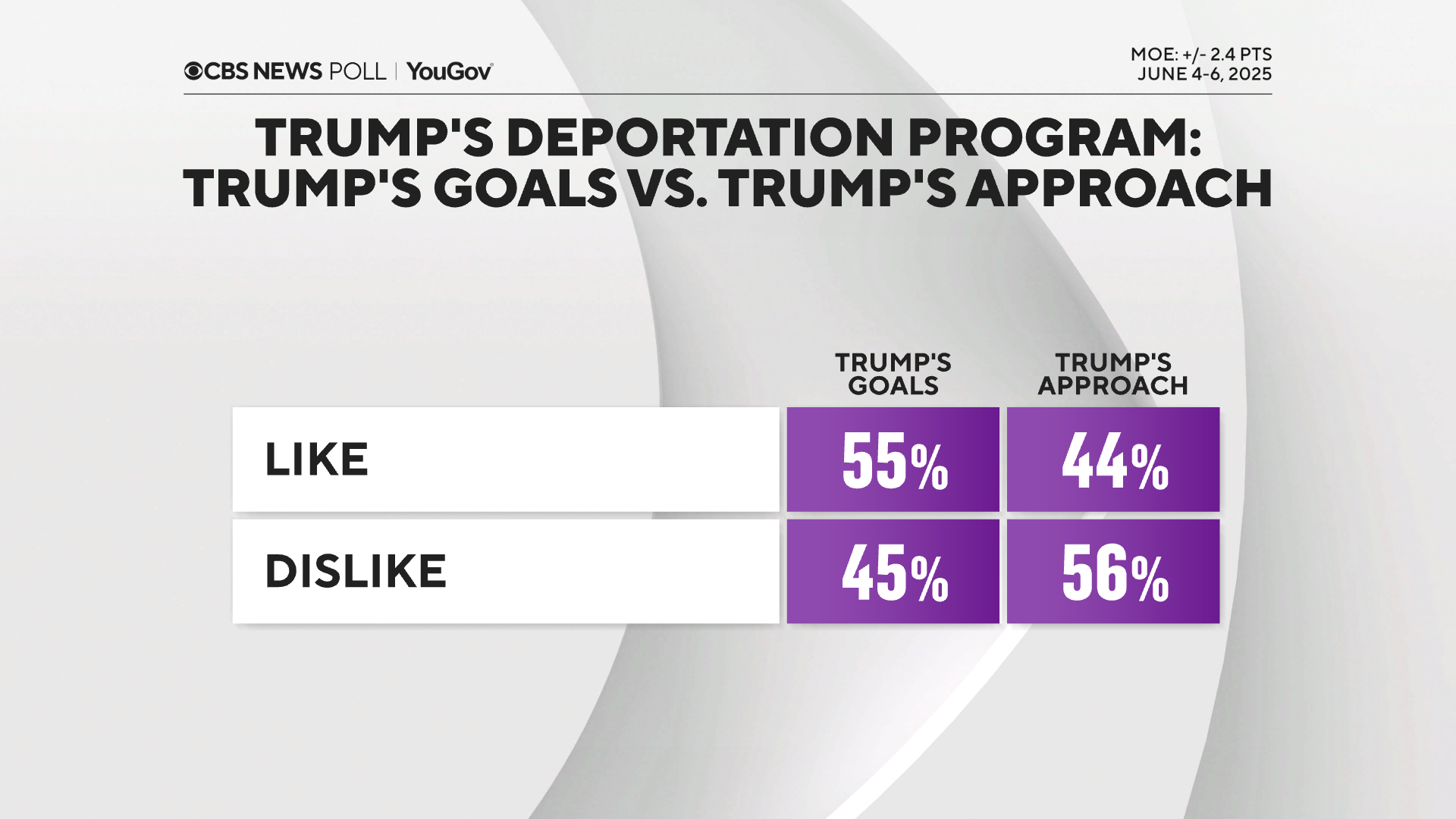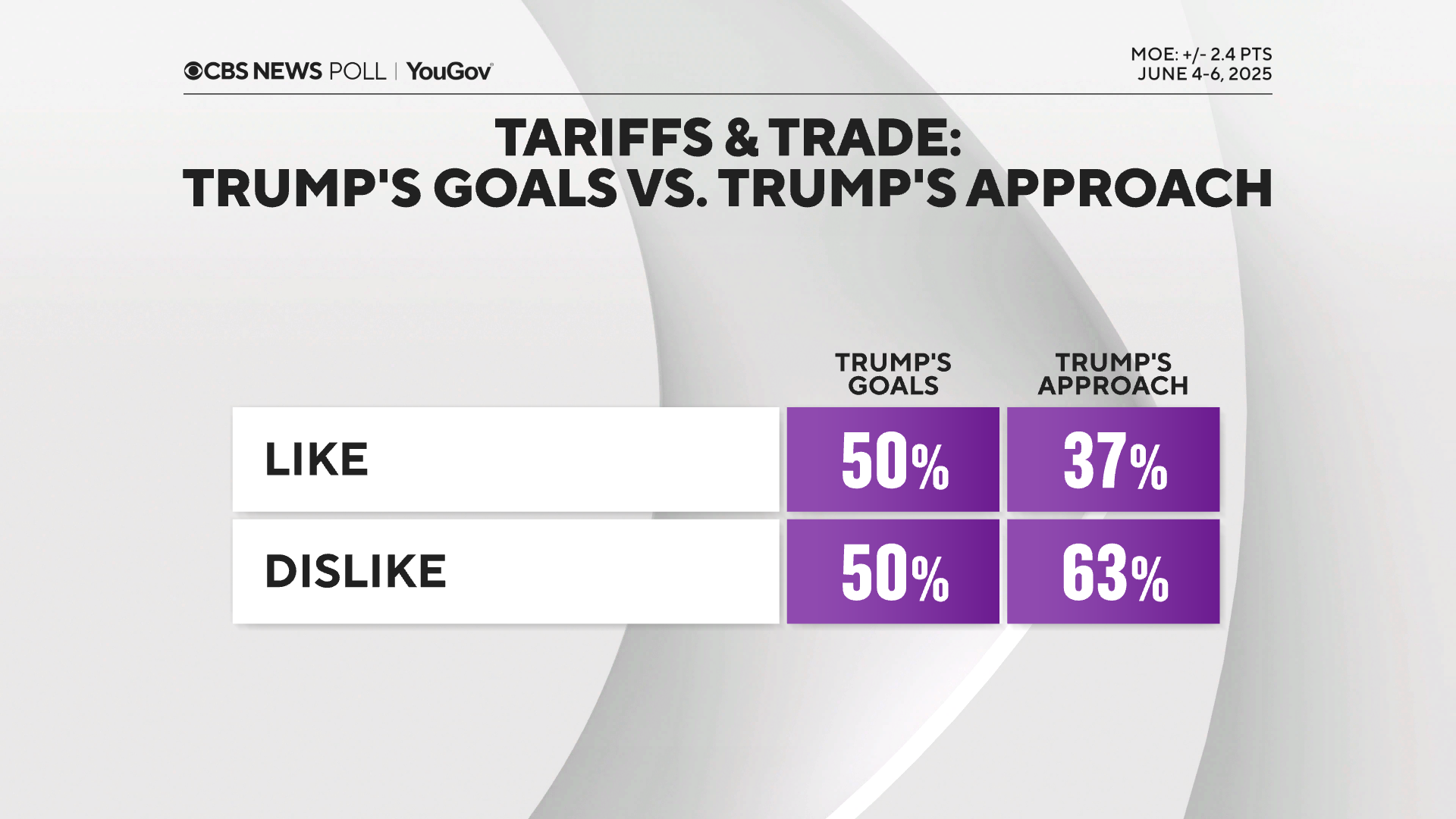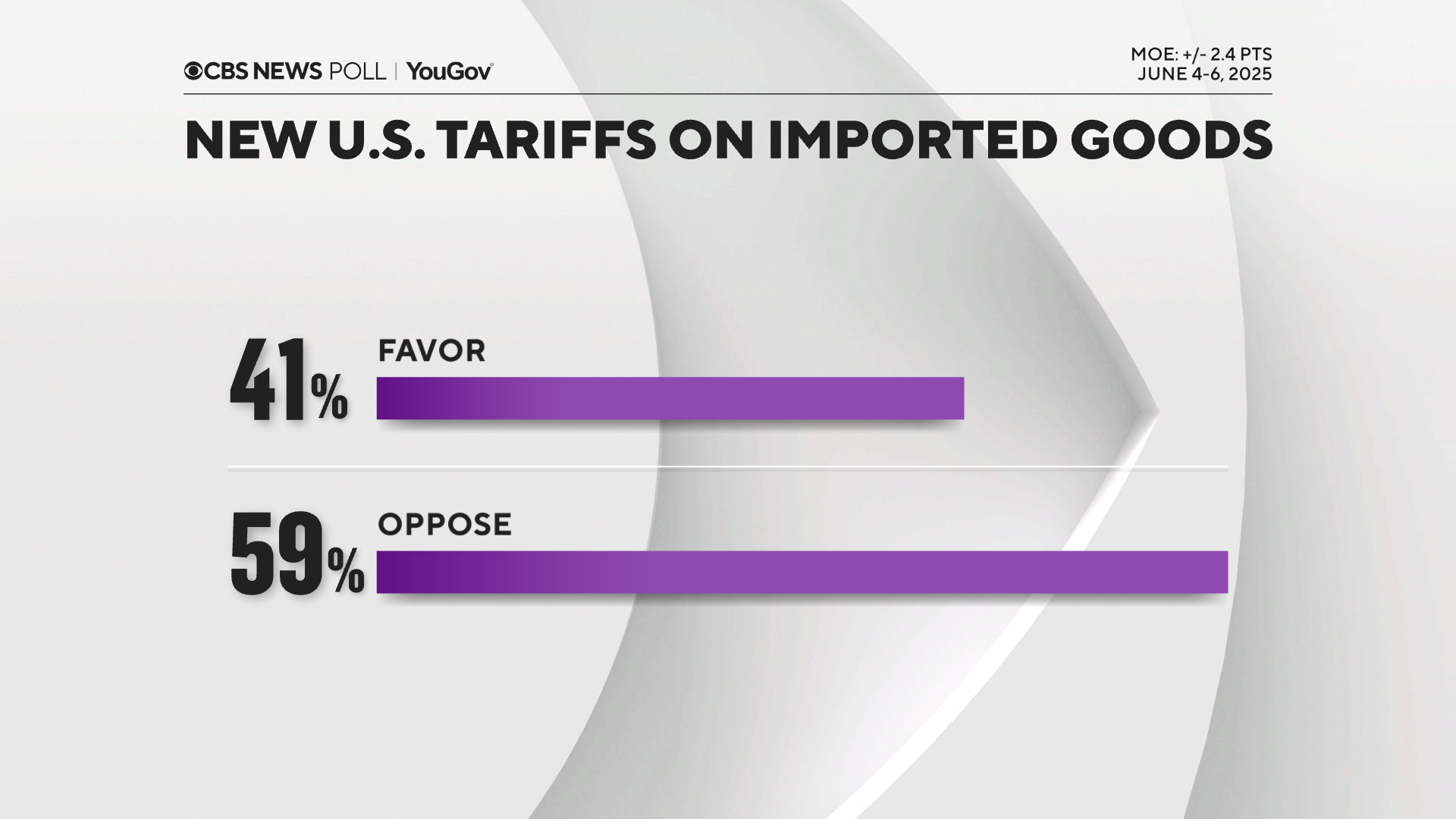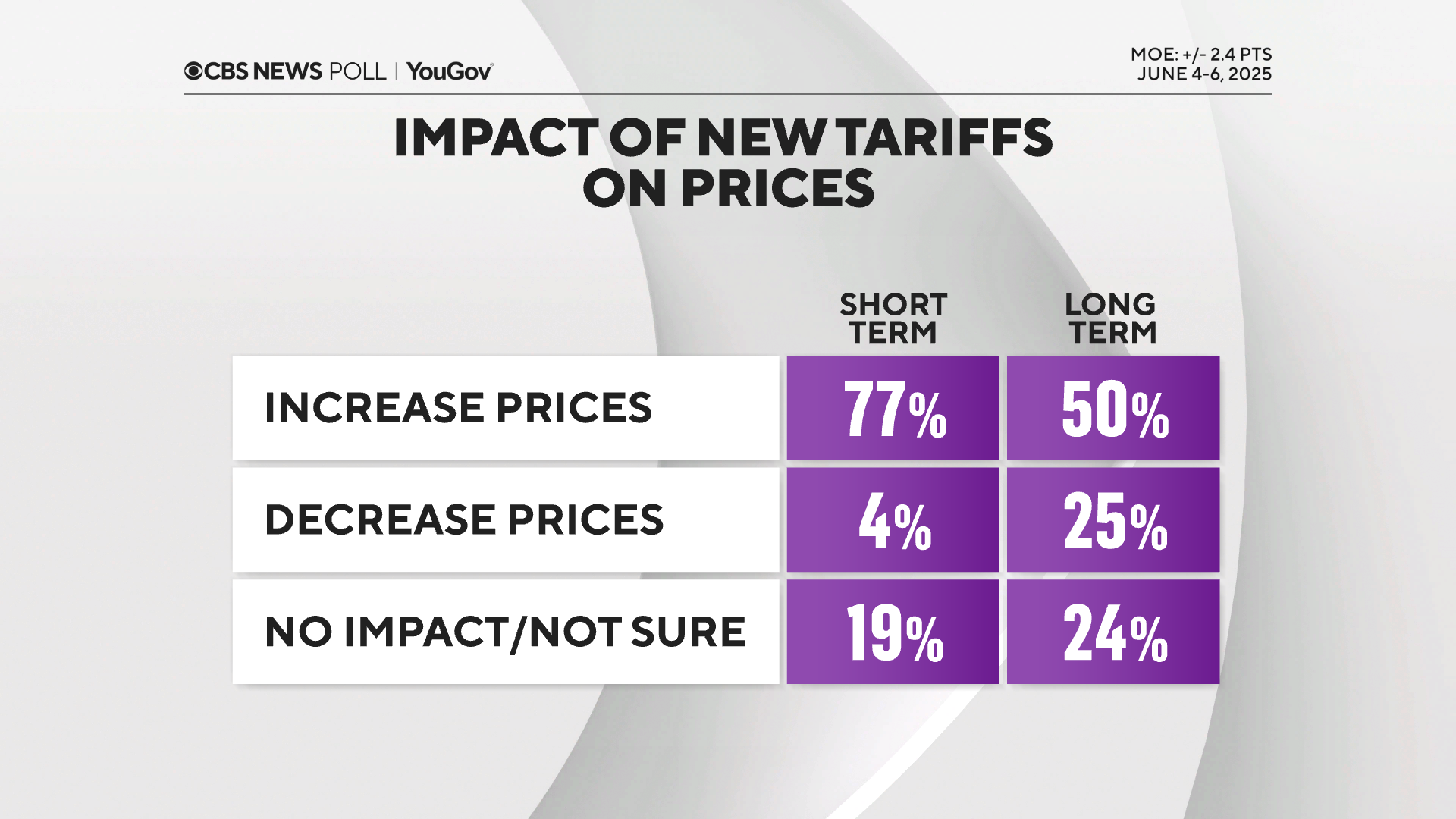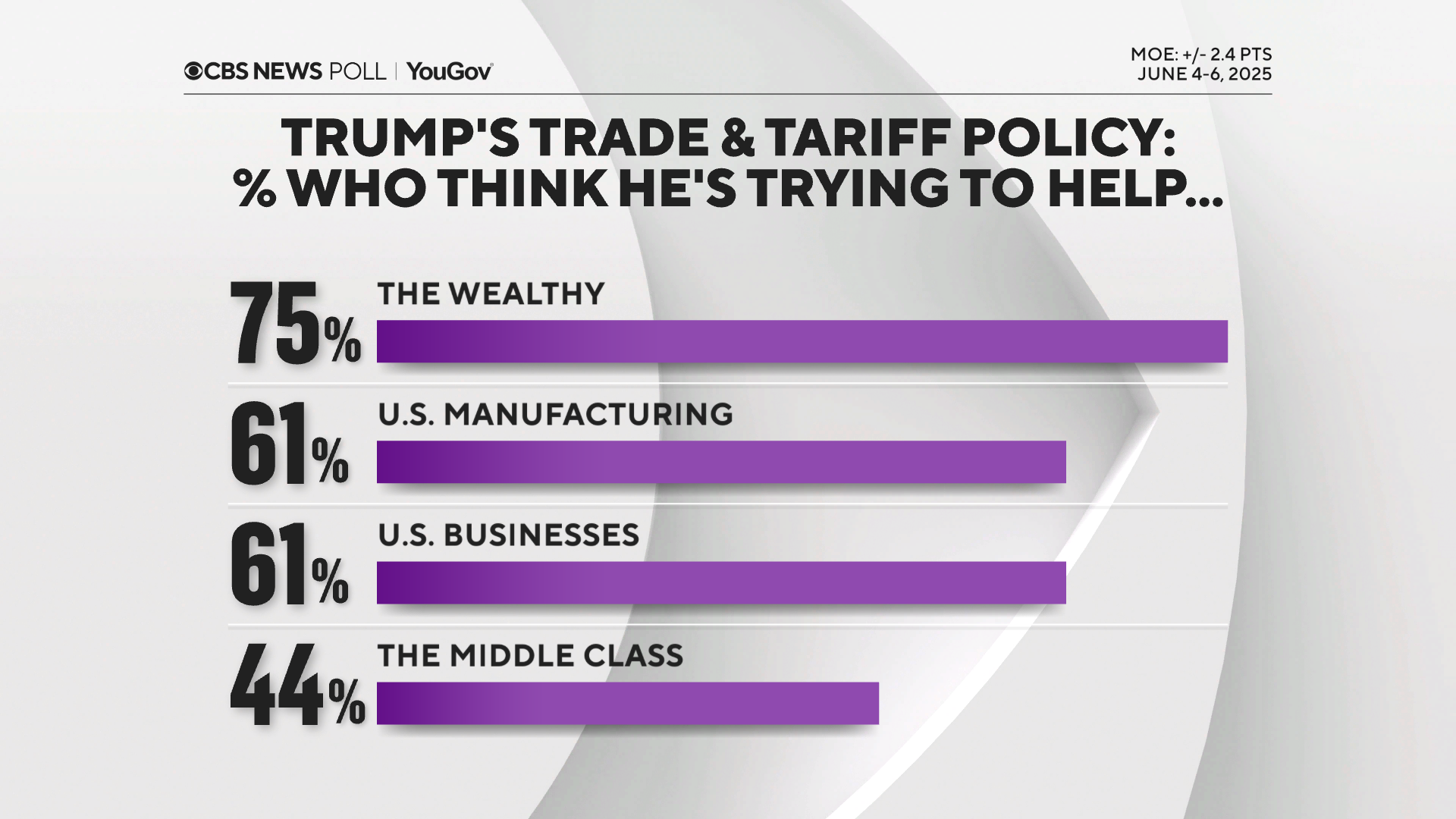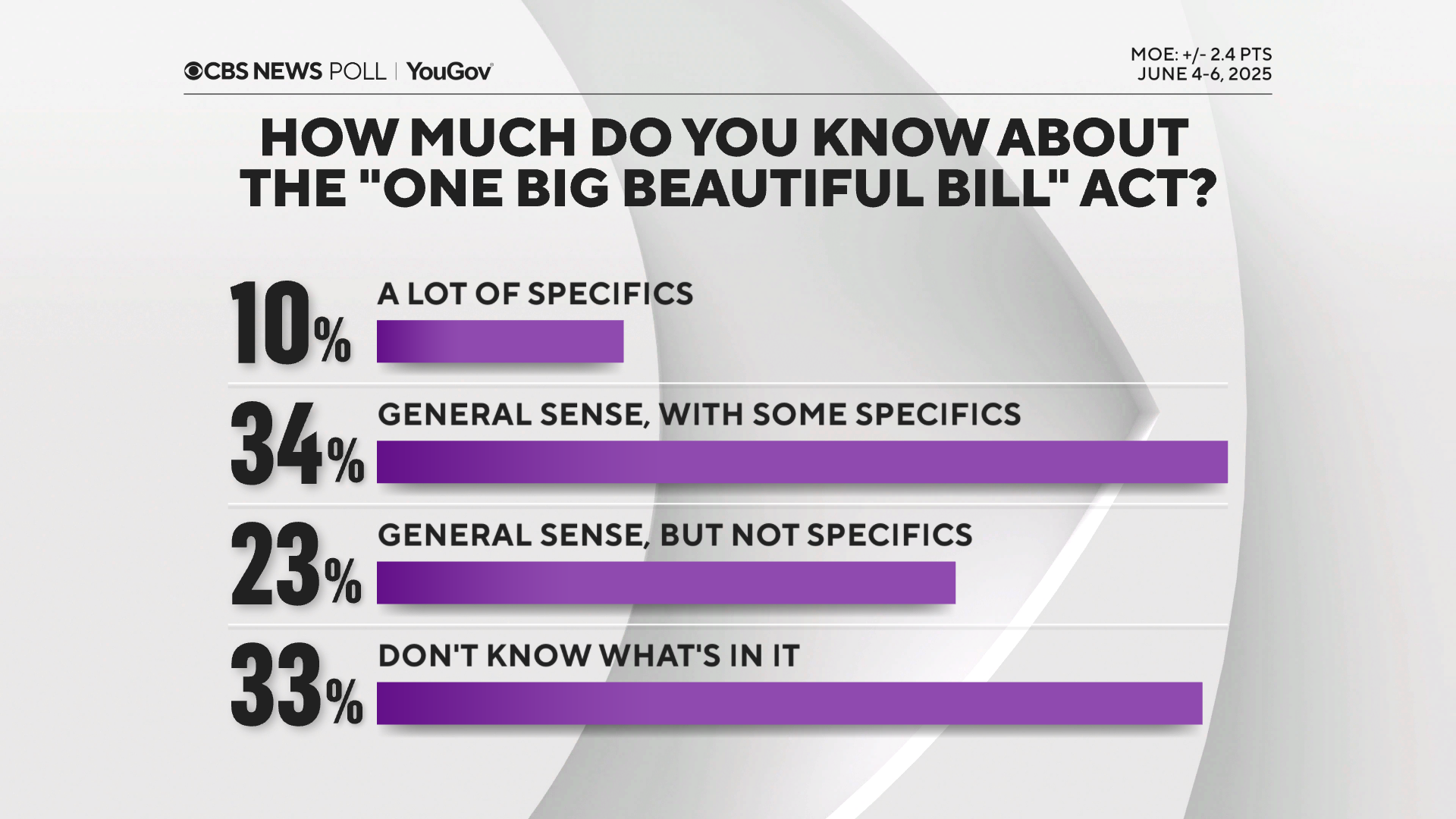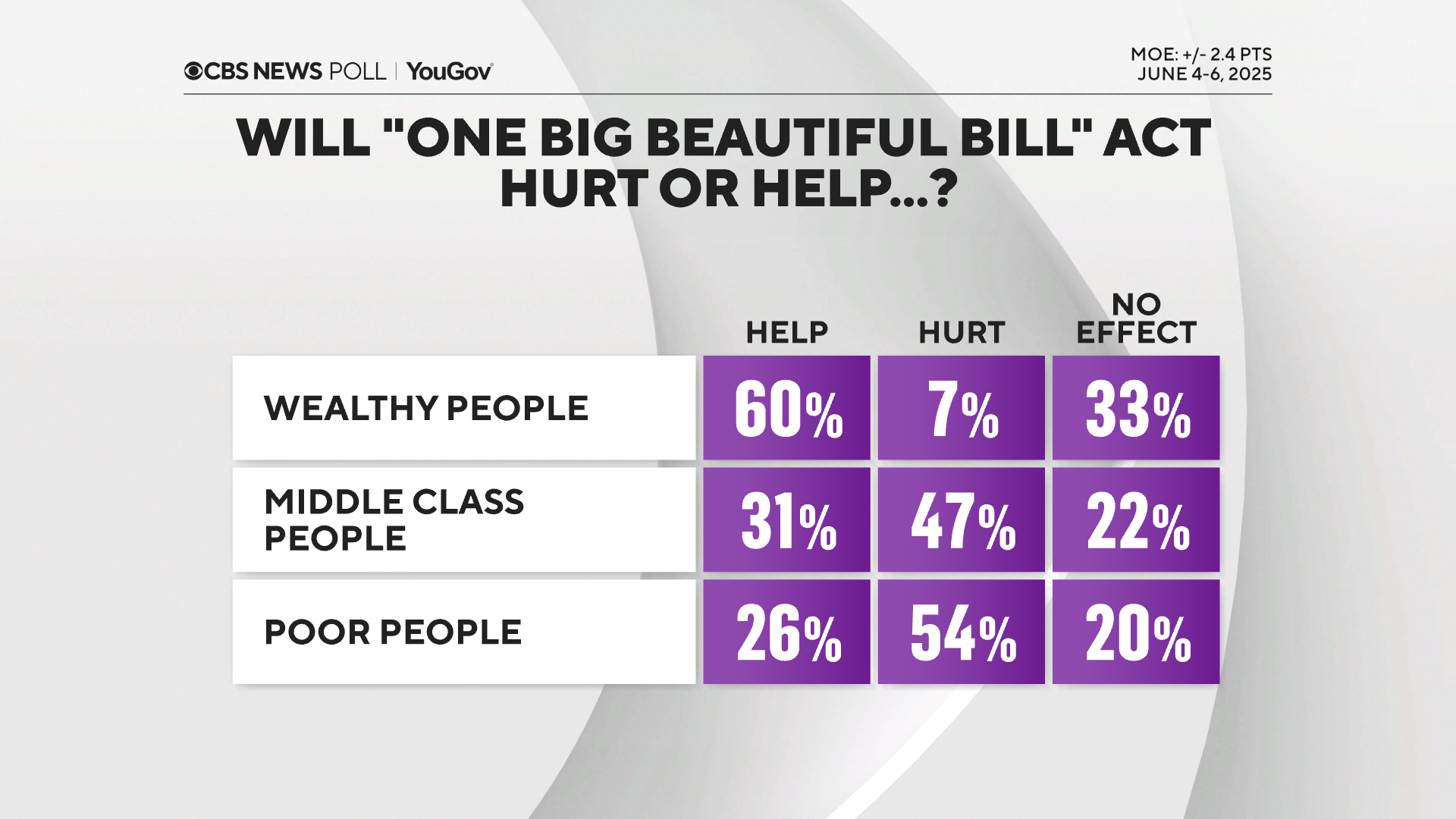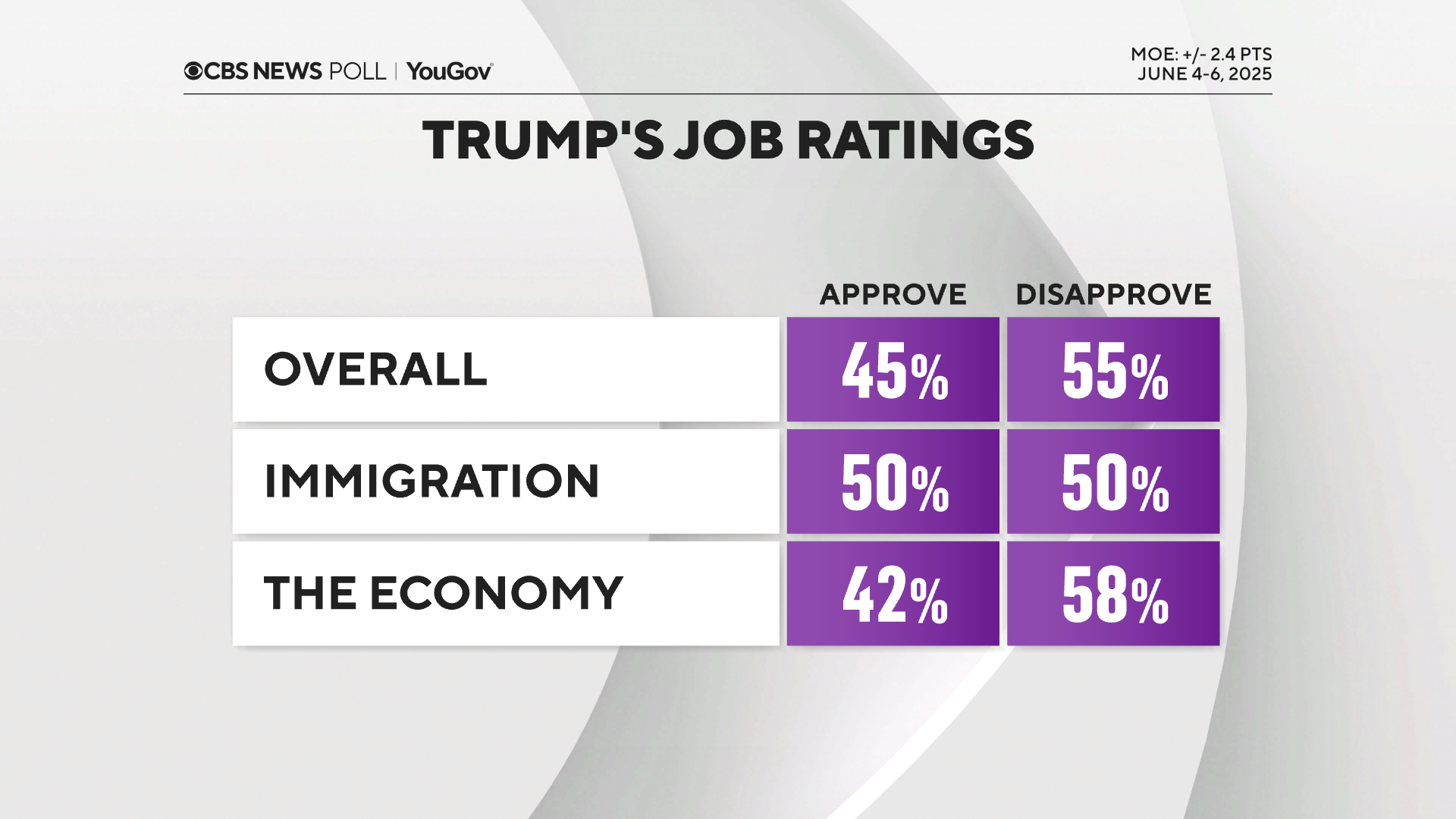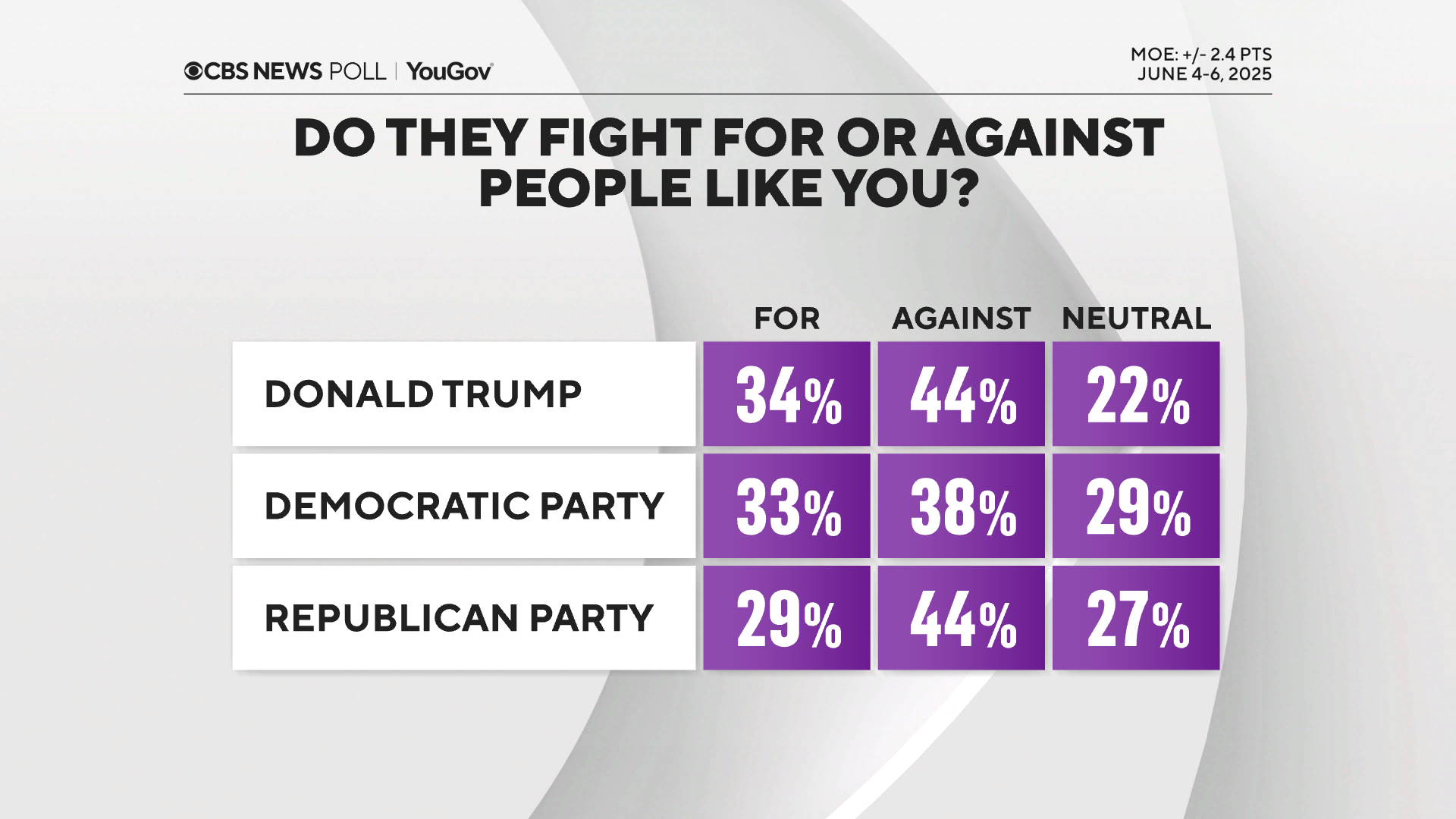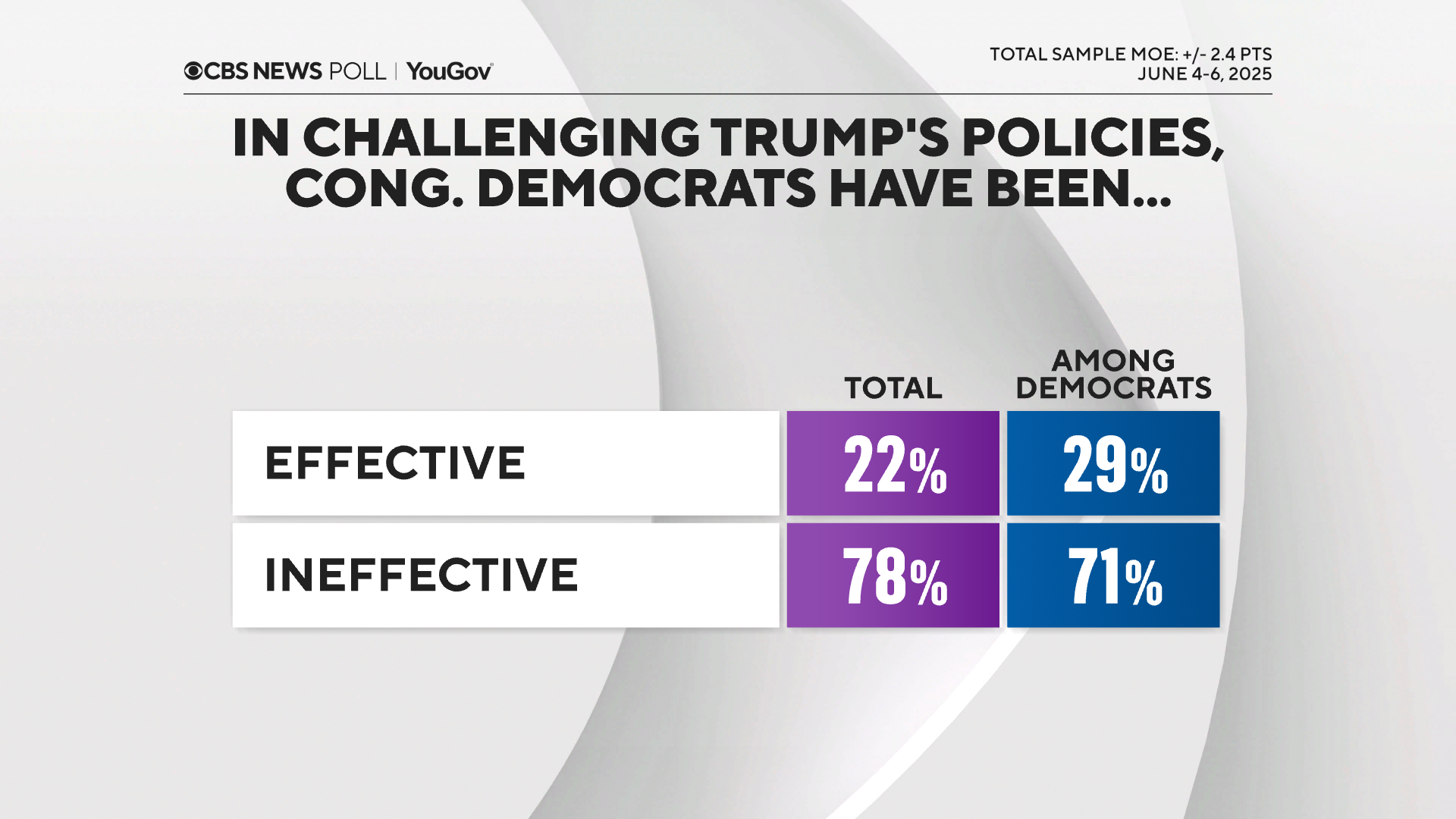Views of the Trump administration’s deportation program headed into this weekend with positive net approval from Americans, including continued strong backing from the Republican base — but also heavily shaped by contrasting views about which people, and how many, are being targeted for deportation.
A slight majority feel the administration’s deportation efforts are prioritizing people they believe are dangerous criminals. Those who say this are very supportive of the program, and feel the program is making people in the U.S. safer.
But if people don’t think it is dangerous criminals who are the focus of the deportation effort, support drops dramatically.
The survey was completed just prior to Saturday’s protests and events in Los Angeles.
In terms of how many people the administration is trying to deport, more is not necessarily better in the public mind.
Half of Americans say Trump is deporting more people than they thought he would during the 2024 campaign. And most in this group disapprove of the deportation program.
Some of this is tied to views on process: those people are also more apt than others to say potential deportees should get a hearing and due process.
On balance, more people see the program making the U.S. safer, compared to less safe.
That’s related to the fact that more believe the administration is prioritizing the deportation of people who they believe are dangerous criminals.
For the Americans who feel the administration is trying to deport more people than they expected, they’re less approving of the program.
On that topic of process, big percentages of Americans continue to say it is not acceptable if legal residents are mistakenly deported as part of the program. MAGA Republicans are more divided on this question, but a majority say it wouldn’t be acceptable.
A lot of this is partisan, and over time, it has become even more so. Independents aren’t as supportive of the deportation program as they were a couple of months ago, leaving the GOP base as the only partisan group with majority backing of the program now. But it is an overwhelming one among Republicans.
Then, there’s also the potential economic impact. Unlike the net-positive views about safety, more Americans think the deportation program will weaken than strengthen the economy.
Views on the economic impact also show some connection to longstanding views about immigrants more generally (though not necessarily those in the country illegally).
Those who feel immigrants take jobs away from Americans are far more approving of the deportation program. (It’s a view that is much more tied to ideology and partisanship than income, with majorities of conservatives and Republicans saying this about immigrants.)
A larger share of Americans say immigrants generally fill jobs Americans won’t do. That in turn is related to the view that the deportation program will weaken the U.S. economy.
In sum, there’s a gap regarding the deportation program, with more people saying they like the goals than the approach.
Views of the national economy have stabilized a bit — they aren’t majority positive (and have not been for years), but are off the 2025 lows they hit late this past winter.
Support for new tariffs in general remains net negative. Americans continue to think they will lead to higher prices at least in the short run, and often in the long run too. That’s generally been the case for a while.
Here again, more people like what they think are Trump’s goals with tariffs than his approach.
Most Americans think the president is trying to help U.S. manufacturing and business. (There’s plenty of cynicism too, with even more saying he’s trying to help the wealthy.)
On another economic front, few people feel they know a lot of the specifics of the One Big Beautiful Bill Act right now. This isn’t too different from the initial phases of other big bills in Congress of past years, like the Build Back Better Act in 2021, for example. That may be a function of the fact that the legislation is still being debated. Most do feel they have a general sense of it.
Views about the potential impact are mixed and may reflect that collective unfamiliarity with the bill. (Though the people who think they know a lot of the specifics are more likely to think it will hurt them, as well as raise their taxes.)
Given the stated goals of the bill include keeping the Trump tax cuts in place, a combined majority of Americans do think it’ll either lower or not impact their taxes either way.
But in terms of groups, only about a third of Americans think this bill would help the middle or working class, and most think it will hurt poor people
Americans think this bill will decrease health insurance coverage, not increase it, and a majority says the bill would increase the federal deficit. (Comparably fewer Republicans think the deficit will increase, though. For context, historically the party’s rank and file have seen tax and spending cuts as a spur to long term growth that could lower it.)
The politics of it all
Trump’s approval rating on immigration continues to be higher than his marks on the economy and inflation. As has typically been the case in his second term, he gets his highest specific ratings from Republicans on immigration. His overall job approval remains unchanged.
Meanwhile, as focus turns more toward Congress as they debate the bill, we do see doubts among Democrats — whose party is in the minority — about their party’s perceived ability to challenge Trump’s policies.
Of the three — Trump, the Republicans, and the Democrats — no one is above water with a majority on being seen as “fighting for people like you.” But Donald Trump does rank highest on the “fights for” by comparison.
But there is mostly the view among Democrats that their party hasn’t been effective at challenging Donald Trump’s policies.
This CBS News/YouGov survey was conducted with a nationally representative sample of 2,428 U.S. adults interviewed between June 4-6, 2025. The sample was weighted to be representative of adults nationwide according to gender, age, race, and education, based on the U.S. Census American Community Survey and Current Population Survey, as well as 2024 presidential vote. The margin of error is ±2.4 points.

